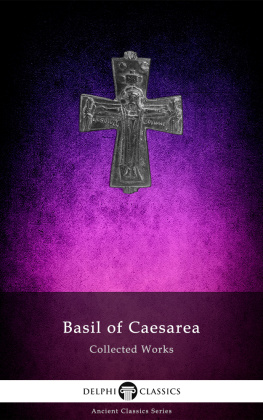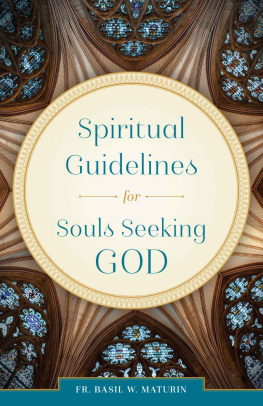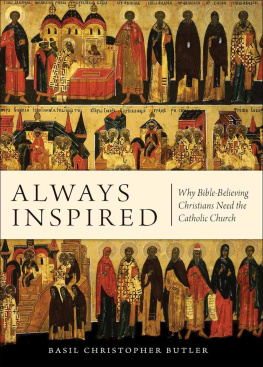FOREWORD
T he western parts of our country are richer in legend than any other part. Perhaps this is because of the Celtic love of poetry and symbolism inherent in the blood of the people of the West; perhaps because of inspiration drawn from the wild hills and bleak moors of the lands in which they live; perhaps because life is, and always was, quieter there, and people have more time to remember the tales of other days than in busier, more prosaic, districts.
Most of the Devon legends cluster around the grim wastes of Dartmoor, and, like that wonderful stretch of country, are wild and awe-inspiring. The devil and his wicked works enter largely into them, and there is reason to believe them to be among the oldest tales known to us. Possibly they were not new when the hut circles of the Moor were inhabited and Grimspound was a busy village.
Some of the Cornish stories told in this series, like the story of Lyonesse and of Parson Dodge and the Spectre Coach, have their beginning in historical fact; yet into the latter story has been woven a tale that is centuries older, in origin, than the days of the eccentric priest of Talland.
But old tales, like old wine, need nothing but themselves to advertise them. In their time they have entertainedwho can say how many hearers through the ages? And they are still goodread or toldto amuse as many more.
LYONESSE
THE CHURCH THE DEVIL STOLE
M ost travellers to the West know queer little Brent Tor, that isolated church-crowned peak that stands up defiantly a mile or two from Lydford, seeming, as it were, a sentry watching the West for grim Dartmoor that rises twice its height behind it. Burnt Tor, they say, was the old name of this peak, because, seen from a distance, the brave little mountain resembles a flame bursting upwards from the earth. Otherswith less imagination and perhaps more knowledgewould have us believe that Brent Tor was once a volcano, and that it really did burn in ages long since.
But the old folk of the neighbourhood care less for the name of their Tor than for the strange story of the church that crowns its summit.
Ever so long ago, they will tell you, the good folk of the lower lands around the foot of the hill decided to build themselves a church. They had long needed one; so long that the Devil, who roamed about Dartmoor, had begun to consider that such an irreligious community was surely marked down for his own.
That is why, when he came upon the people one day setting to work to build a church, he was overcome with fury.
But he seems to have thought it all out carefully, and to have decided to let them go on for a while, and so, week after week, at the foot of Brent Tor, the little church grew.
At last it was finished, and the good folk were preparing great festivities for its dedication when, during one dark autumn night, the church disappeared.
In the greatest distress they bemoaned their sad plight, but they were quick to attribute the evil action to the Prince of Darkness, and to show him that they were not to be intimidated they decided to begin at once to build another church. Throughout the day they made their plans, and retired to rest that night determined to start on their pious work next morning.
But when they woke in the morning they saw with amazement their own church perched high on the hill above them. The Devil had stolen it, and to mock the villagers had replaced it on the hilltop, where, he thought, having dominion over the powers of the air, he would be able to defeat their designs.
The people, however, thought otherwise. They sent in haste for the nearest bishop, and with him proceeded to the top of Brent Tor. And, since St. Michael looks after hilltops, to him they dedicated their church.
Hardly had the service finished when the Devil, passing by, looked in to jeer, as he thought, at the foolish folk he had deceived. But on the summit of the Tor he met St. Michael.
The Archangel fell upon the Evil One and tumbled him straightway down the hill; then, to make sure of his discomfiture, hurled a huge rock after him. And there at the base of Brent Tor you may see the very rock to this day.
If you climb to the top of the hill you will get, on a fine day, one of the most beautiful views in the West. On one side is Dartmoor in all its rugged glory; on the other, distant, blue and mysterious, the uplands of the Bodmin moors.
Lydford, from which you can best reach Brent Tor, is famous for its wild gorge. It stands on the edge of Dartmoor itself, and from it country of wonderful beauty may easily be reached. All around are hills and heather-carpeted moorland; yet a short railway journey will take you from this far-away village to busy Plymouth, Okehampton, or Launceston, the border town of Cornwall.
Here, where winds sweep from any direction across great wastes of moor, or from the sea, health and quiet are to be found more easily than in any popular holiday resort or fashionable spa.
Brent Tor Church
THE PARSON AND THE CLERK
A ll real old stories of long ago should begin with "Once upon a time," and so, once upon a time there was a Bishop of Exeter who lay very ill at Dawlish, on the South Devon coast, and among those who visited him frequently was the parson of an inland parish who was ambitious enough to hope that, should the good bishop die, he would be chosen to fill his place.
This parson was a man of violent temper, and his continued visits to the sick man did not improve this, for his journey was a long and dreary one, and the bishop, he thought, took an unconscionable time in dying. But he had to maintain his reputation for piety, and so it happened that on a winter night he was riding towards Dawlish through the rain, guided, as was his custom, by his parish clerk.
That particular night the clerk had lost his way, and, long after he and his master should have been in comfortable quarters at Dawlish, they were wandering about on the high rough ground of Haldon, some distance from the village. At last, in anger, the parson turned upon his clerk and rebuked him violently. "You are useless," he said; "I would rather have the devil for a guide than you." The clerk mumbled some excuse, and presently the two came upon a peasant, mounted upon a moor pony, to whom they explained their plight.
The stranger at once offered to guide them, and very soon all three had reached the outskirts of the little coast town. Both parson and clerk were wet through, and when their guide, stopping by an old, tumble-down house, invited them to enter and take some refreshment, both eagerly agreed. They entered the house and found there a large company of wild-looking men engaged in drinking from heavy black-jacks, and singing loud choruses. The parson and his servant made their way to a quiet corner and enjoyed a good meal, then, feeling better, agreed to stay for a while and join their boisterous companions.











